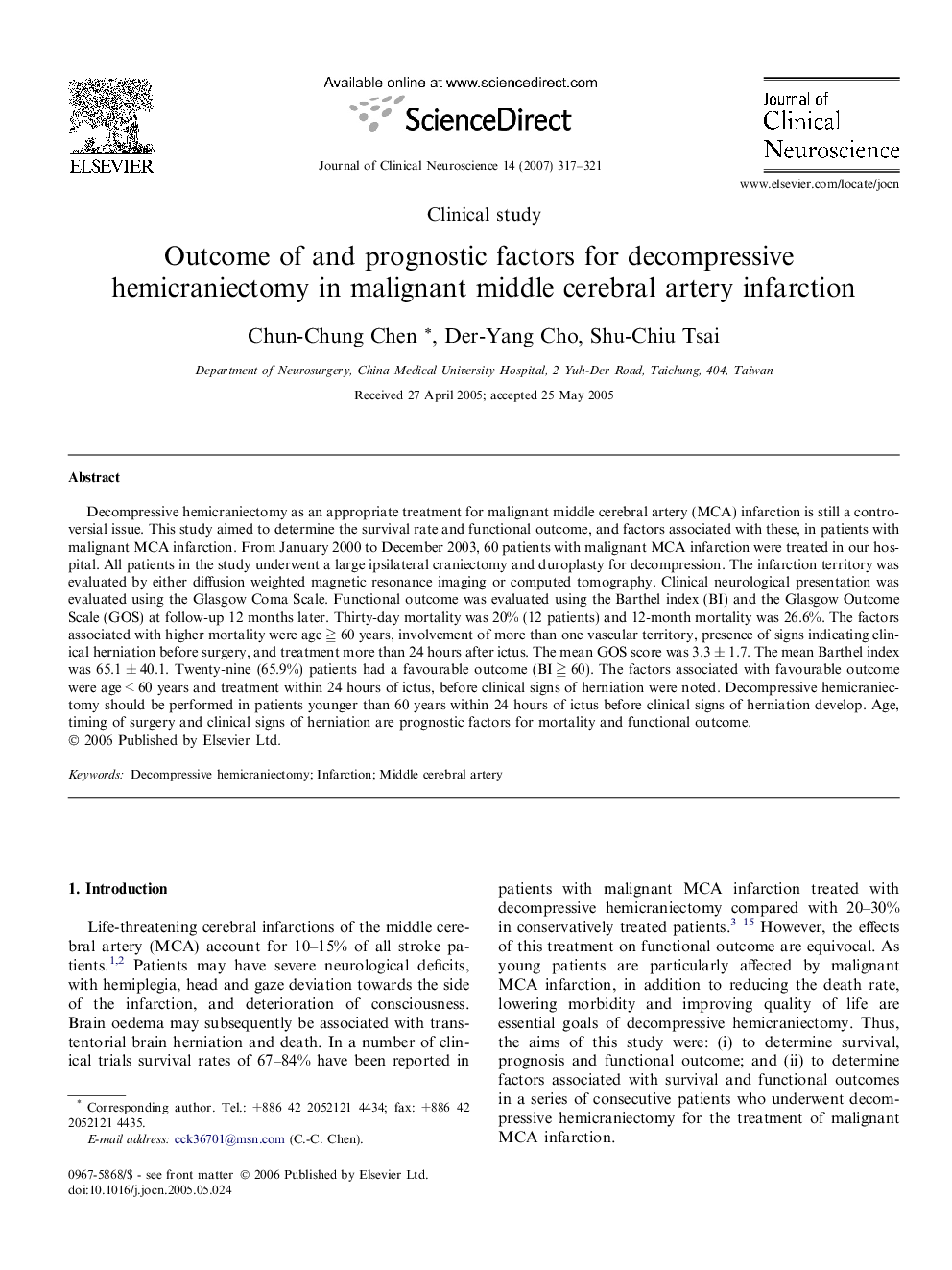| Article ID | Journal | Published Year | Pages | File Type |
|---|---|---|---|---|
| 3063392 | Journal of Clinical Neuroscience | 2007 | 5 Pages |
Decompressive hemicraniectomy as an appropriate treatment for malignant middle cerebral artery (MCA) infarction is still a controversial issue. This study aimed to determine the survival rate and functional outcome, and factors associated with these, in patients with malignant MCA infarction. From January 2000 to December 2003, 60 patients with malignant MCA infarction were treated in our hospital. All patients in the study underwent a large ipsilateral craniectomy and duroplasty for decompression. The infarction territory was evaluated by either diffusion weighted magnetic resonance imaging or computed tomography. Clinical neurological presentation was evaluated using the Glasgow Coma Scale. Functional outcome was evaluated using the Barthel index (BI) and the Glasgow Outcome Scale (GOS) at follow-up 12 months later. Thirty-day mortality was 20% (12 patients) and 12-month mortality was 26.6%. The factors associated with higher mortality were age ≧ 60 years, involvement of more than one vascular territory, presence of signs indicating clinical herniation before surgery, and treatment more than 24 hours after ictus. The mean GOS score was 3.3 ± 1.7. The mean Barthel index was 65.1 ± 40.1. Twenty-nine (65.9%) patients had a favourable outcome (BI ≧ 60). The factors associated with favourable outcome were age < 60 years and treatment within 24 hours of ictus, before clinical signs of herniation were noted. Decompressive hemicraniectomy should be performed in patients younger than 60 years within 24 hours of ictus before clinical signs of herniation develop. Age, timing of surgery and clinical signs of herniation are prognostic factors for mortality and functional outcome.
